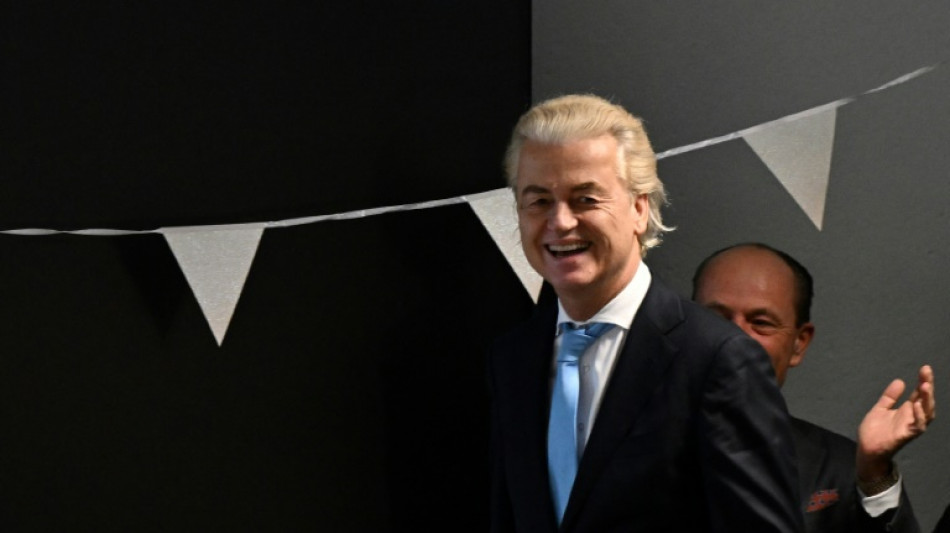
-
 Trump reinstates commercial fishing in protected Atlantic waters
Trump reinstates commercial fishing in protected Atlantic waters
-
Man Utd can't rush manager choice: Carrick

-
 Leeds boost survival bid with win over relegation rivals Forest
Leeds boost survival bid with win over relegation rivals Forest
-
Stars, Clydesdales and an AI beef jostle for Super Bowl ad glory

-
 Dow surges above 50,000 for first time as US stocks regain mojo
Dow surges above 50,000 for first time as US stocks regain mojo
-
Freeski star Gu says injuries hit confidence as she targets Olympic treble

-
 UK police search properties in Mandelson probe
UK police search properties in Mandelson probe
-
Bompastor extends contract as Chelsea Women's boss despite slump
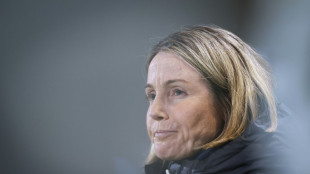
-
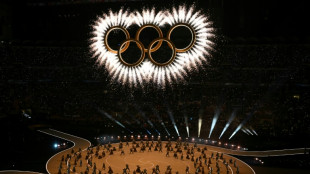 Milan-Cortina Winter Olympics open with glittering ceremony
Milan-Cortina Winter Olympics open with glittering ceremony
-
A French yoga teacher's 'hell' in a Venezuelan jail
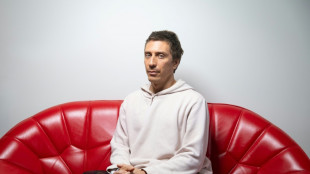
-
 England's Underhill taking nothing for granted against Wales
England's Underhill taking nothing for granted against Wales
-
Fans cheer for absent Ronaldo as Saudi row deepens
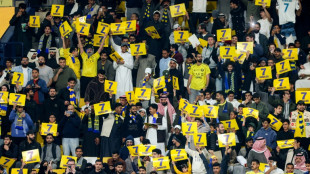
-
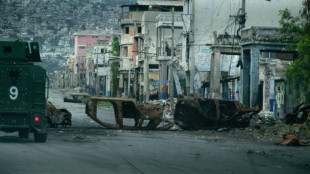 Violence-ridden Haiti in limbo as transitional council wraps up
Violence-ridden Haiti in limbo as transitional council wraps up
-
Hundreds protest in Milan ahead of Winter Olympics
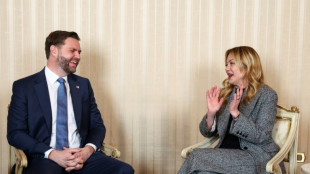
-
 Suspect in murder of Colombian footballer Escobar killed in Mexico
Suspect in murder of Colombian footballer Escobar killed in Mexico
-
Colombia's Rodriguez signs with MLS Minnesota United

-
 Wainwright says England game still 'huge occasion' despite Welsh woes
Wainwright says England game still 'huge occasion' despite Welsh woes
-
WADA shrugs off USA withholding dues
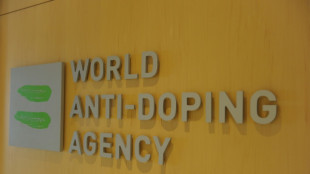
-
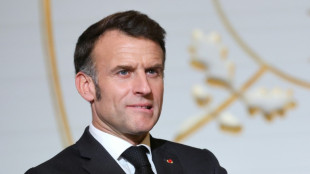 France detects Russia-linked Epstein smear attempt against Macron
France detects Russia-linked Epstein smear attempt against Macron
-
Winter Olympics to open with star-studded ceremony
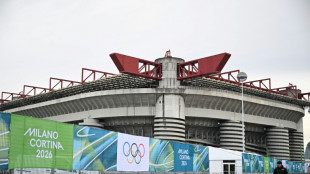
-
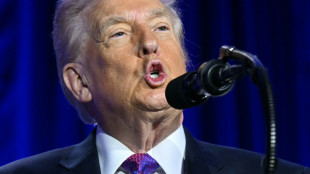 Trump posts, then deletes, racist clip of Obamas as monkeys
Trump posts, then deletes, racist clip of Obamas as monkeys
-
Danone expands recall of infant formula batches in Europe

-
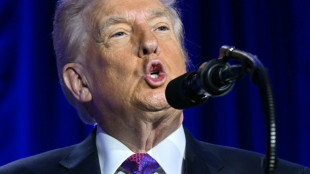 Trump deletes racist video post of Obamas as monkeys
Trump deletes racist video post of Obamas as monkeys
-
Colombia's Rodriguez signs with MLS side Minnesota United

-
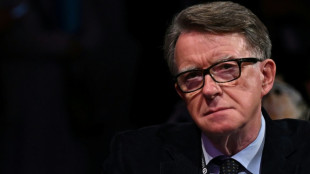 UK police probing Mandelson after Epstein revelations search properties
UK police probing Mandelson after Epstein revelations search properties
-
Russian drone hits Ukrainian animal shelter

-
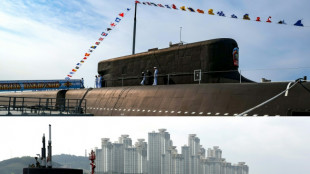 US says new nuclear deal should include China, accuses Beijing of secret tests
US says new nuclear deal should include China, accuses Beijing of secret tests
-
French cycling hope Seixas dreaming of Tour de France debut
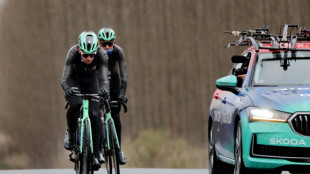
-
 France detects Russia-linked Epstein smear attempt against Macron: govt source
France detects Russia-linked Epstein smear attempt against Macron: govt source
-
EU nations back chemical recycling for plastic bottles
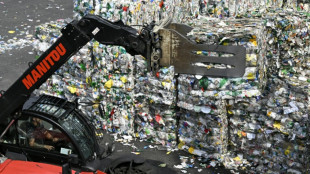
-
 Terror at Friday prayers: witnesses describe blast rocking Islamabad mosque
Terror at Friday prayers: witnesses describe blast rocking Islamabad mosque
-
Iran expects more US talks after 'positive atmosphere' in Oman
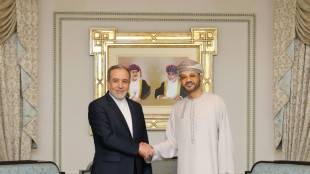
-
 US says 'key participant' in 2012 attack on Benghazi mission arrested
US says 'key participant' in 2012 attack on Benghazi mission arrested
-
Why bitcoin is losing its luster after stratospheric rise

-
 Arteta apologises to Rosenior after disrespect row
Arteta apologises to Rosenior after disrespect row
-
Terror at Friday prayers: witness describes 'extremely powerful' blast in Islamabad

-
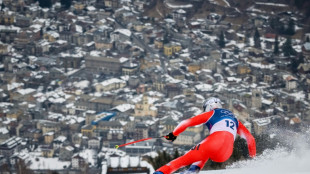 Winter Olympics men's downhill: Three things to watch
Winter Olympics men's downhill: Three things to watch
-
Ice dancers Chock and Bates shine as US lead Japan in team event

-
 Stellantis takes massive hit on 'overestimation' of EV demand
Stellantis takes massive hit on 'overestimation' of EV demand
-
Stocks rebound though tech stocks still suffer

-
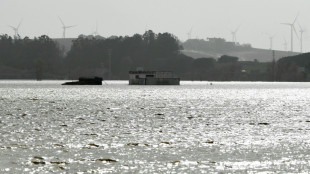 Spanish PM urges caution as fresh rain heads for flood zone
Spanish PM urges caution as fresh rain heads for flood zone
-
Iran says to hold more talks with US despite Trump military threats
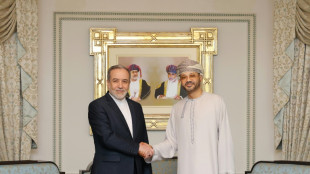
-
 Russia accuses Kyiv of gun attack on army general in Moscow
Russia accuses Kyiv of gun attack on army general in Moscow
-
Cambodia reveals damage to UNESCO-listed temple after Thailand clashes

-
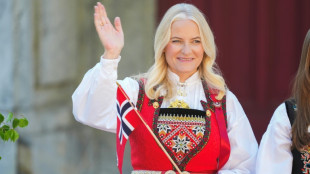 Norway crown princess 'deeply regrets' Epstein friendship
Norway crown princess 'deeply regrets' Epstein friendship
-
Italy set for Winter Olympics opening ceremony as Vonn passes test
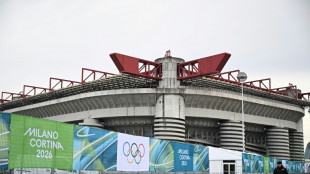
-
 England's Jacks says players back under-fire skipper Brook '100 percent'
England's Jacks says players back under-fire skipper Brook '100 percent'
-
Carrick relishing Frank reunion as Man Utd host Spurs
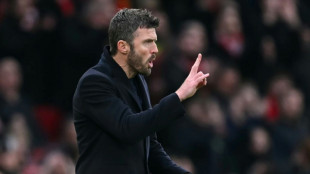
-
 Farrell keeps the faith in Irish still being at rugby's top table
Farrell keeps the faith in Irish still being at rugby's top table
-
Meloni, Vance hail 'shared values' amid pre-Olympic protests
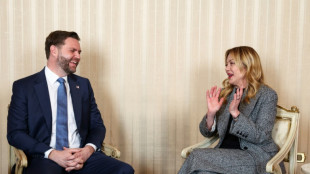

Wilders' win sets 'textbook' example for European populist right: analysts
Anti-EU, anti-immigration firebrand Geert Wilders' surprise victory in the Dutch general election this week shows right-wing populism's success in gobbling up support from traditional conservative parties and taking its pet themes mainstream, experts said.
Whether in power -- often in coalition -- in countries including Italy, Hungary or Slovakia, or steadily gaining, as in France, Germany and Spain, momentum appears on the side of far-right parties.
"Election after election, we're seeing the far right win immense successes," French MEP Raphael Glucksmann told broadcaster France 2 on Friday.
"The European Union is in danger of death from within and without," he warned.
In recent months, observers "were very focused on elections in large countries in the EU... Spain this summer or Poland in October" where populists suffered setbacks, said French political scientist Thierry Chopin.
"(But) the reasons that explain the strength or even the rise of far-right parties in some European countries have not gone away," added Chopin, a researcher at France's Jacques Delors Institute.
Rooted in nationalism and opposition to immigration, the rise of far-right parties began in the late 1970s, surging in 2015 when hundreds of thousands of Syrians fleeing civil war arrived across the continent.
Geert Wilders' career has been built on anti-Islam rhetoric.
Italy's Giorgia Meloni mostly campaigned on anti-immigration themes.
And Sweden is governed by a coalition supported by the far-right that promises to reduce arrivals.
France, Germany and Spain's politics are often dominated by rows about identity and immigration.
- Anti-elites -
In the Netherlands, the traditional centre-right VVD party "had no power to set the terms of debate on Wilders' preferred themes", said Johannes Hillje, a German electoral strategist and author of "Propaganda 4.0: how far-right populists do politics".
"Other parties in the conservative spectrum across Europe have lost their hegemony on the right."
Chopin pointed to classic themes of populist right politics in Wilders' campaign -- anti-elite rhetoric that breaks with bipartisan consensus, fears about immigration and cultural change, and questioning of welfare and redistribution.
"Times of economic and social insecurity favour far-right parties," said Gilles Ivaldi, a researcher at Paris' Sciences Po university.
During the Covid-19 pandemic, the groups "mobilised a lot of people based on fear, frustration and rejection of the health measures... banking support" for the future, he added.
The Netherlands was also "a textbook example of how not to deal with the radical right", as other parties and the media took their policy positions mainstream, Hillje said.
In the Netherlands, VVD leader Dilan Yesilgoz left the possibility of a coalition with Wilders open before the election, only to rule out being a junior partner when he won.
"Everything they did made Wilders stronger and contributed to his electability," Hillje argued.
- Increasingly mainstream -
Wilders and Italian premier Meloni have followed the "de-demonisation" strategy of French far-right figurehead Marine Le Pen, moderating their rhetoric when it looks electorally useful.
"It's not that they've changed their positions, but they express them a little differently to be more appealing, to overcome the emotional barrier to the middle ground," Hillje said.
Meloni has backed Ukraine and trimmed her hostility to the EU, with one French diplomat recently telling AFP she had been "a welcome surprise" on international issues.
"(But) in domestic politics she's doing just what she promised, cutting welfare benefits, taking a hard line against refugees," Hillje pointed out.
"All these parties signal respectability. They have learned or are learning how to exercise power," Ivaldi said -- while cautioning against handing them "a democratic blank cheque".
Many mainstream conservative parties are also absorbing far-right ideas or considering cooperation.
Politicians from Germany's CDU sometimes openly mull regional coalitions with the far-right Alternative for Germany (AfD), while France's right-wing Republicans often try to outdo the far-right National Rally (RN) in shows of toughness against migrants.
At the European level, "an alliance between the far right and the (centre-right) European People's Party (EPP) is not impossible", Ivaldi said.
"That would be a big shift... on migration policy but also on the environment" given far-right denials of climate change.
Ivaldi nevertheless warned against overstating the common ground between far-right parties in different European countries.
"There are very clear fault lines" on support for or hostility to Russia, economics and values, he said.
"Fundamentally, what holds these right-wing populists together is shared enemies and things they all reject, like migration or ambitious climate policies," Hillje said.
"There are conflicts within this camp that will not lead to unified policy, and that may be the hope for the mainstream camp in Europe".
O.Salim--SF-PST


